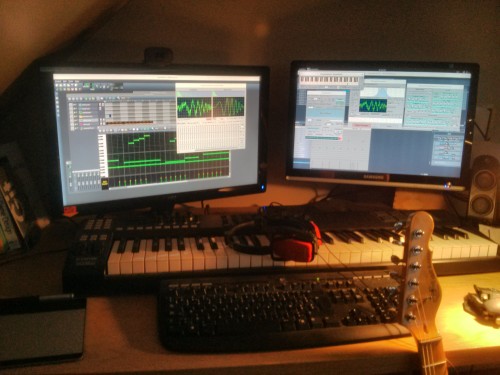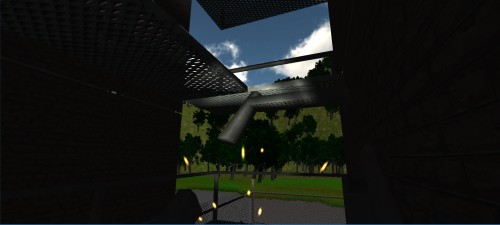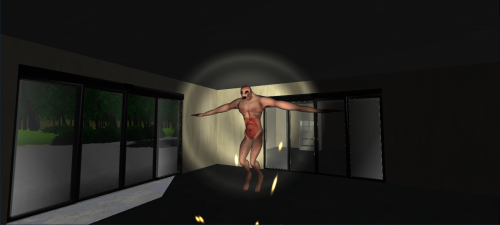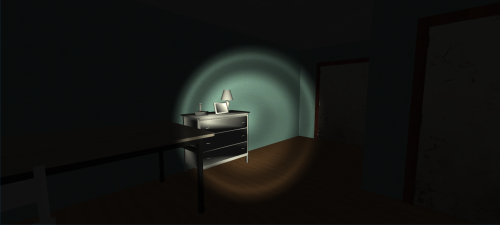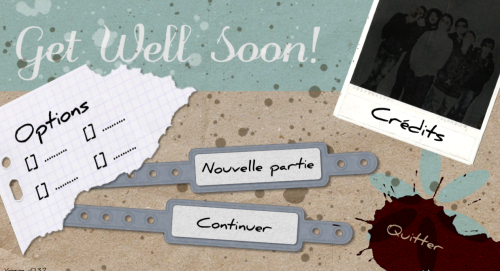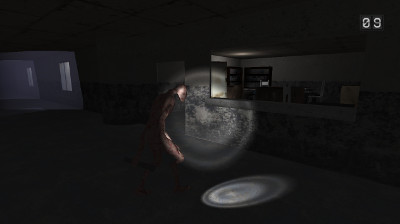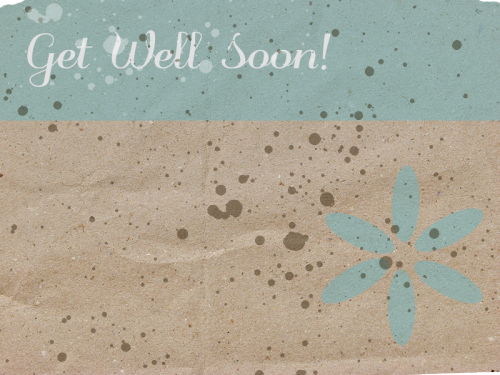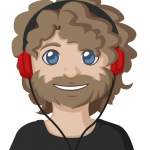After the success of Get Well Soon! on Ludum Dare 27, we decided to continue to work on this game. Our objective : to offer a second version by the end of the year.
Soon after, we stumbled upon the FrenchCows team who were looking for game developers willing to include their game in a pack, but also to get involved into a community and develop additional contents during three months. Their scope and ours being so alike, we took the opportunity right away!
So here we are, three months after LD27, with our first game available online!
What’s FrenchCows ?
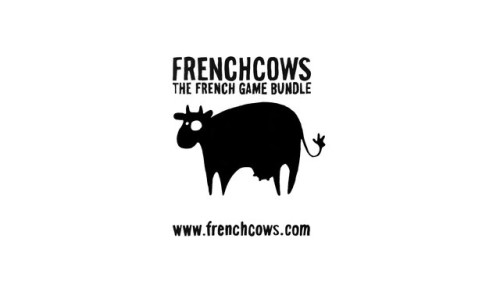
This French initiative sells indie games packs, but not only. The point is to bring together gamers and developers and to make the game evolve during the whole pack’s duration, which is three months.
Thus the game included at the beginning of the pack won’t be the same than the game offered at the end. And that’s especially thank to the players’ reviews! This asks a big investment from us, but it’s also a source of motivation!
If you want more information, go over here! And, even better, if you want to buy our pack (we won’t stop bringing it ;p), that’s over here!
A second version, alright, but what about it?
Level design
We will refine our game, but why not go further than that? We decided to create even bigger levels and we well intend to put this additional space to good use!
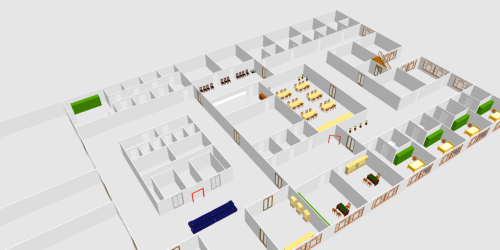
A juicy preview of the new map
Graphism
We are first concentrating on design, before starting to texture. Some objects created during LD27 must be revamped, others were added on the to-do list since we have additional rooms.
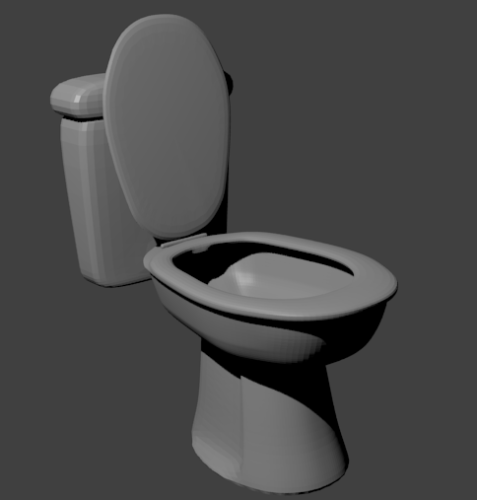
Yes. Essential.
Meanwhile, we’re working on the levels’ re-design, based on the map and on additional functionalities, like sliding doors… which – wait for it – actually open when you get near!
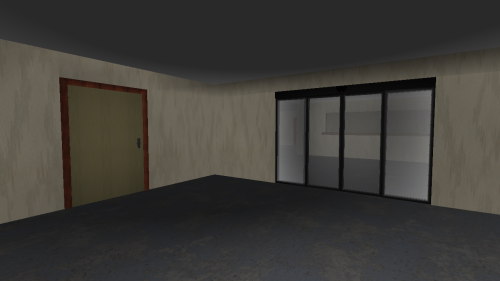
Then, of course, we’ll have to rethink the monster’s design.
Development
As for everything else, we have two objectives in mind here : add new functionalities and improve what is already there.
Since FrenchCows, the diffusion platform with which we’re working, is French, we started by implementing translation management to make the game multilingual. Each message was linked to a code. When the message must be shown on the screen, the game send the code to the translation module which translates it into a message in the language chosen by the user.
We only translated everything into French until now, but if necessary, this translation module could handle more languages!
Furthermore, as previously said, the doors module was corrected. We added a new set of doors: the sliding doors.
Consequently, a door can now open because of the players’ action (for example, click on “space” to open the door) or when he comes near it (since sliding doors are automatic). Moreover, the opening system is different between classic doors (rotation) and automatic doors (sliding).
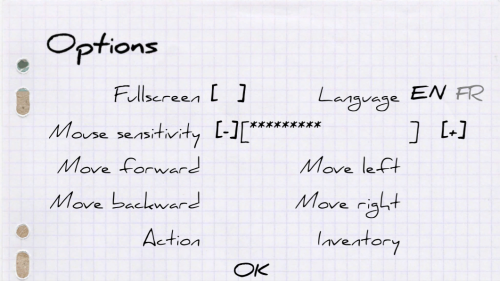
Last but not least, we worked on the menu. The fullscreen option is now working, as well as the “back” button which was bugged in the LD27 version. A language selection screen has been integrated to complement the language module asking to choose a language the first time you launch the game. The game also saves the player’s controls options, for those who like to customize them. The mouse’s sensibility can also be changed but this parameter isn’t implemented in the actual gameplay yet.
The main menu design has also been reviewed and improved!
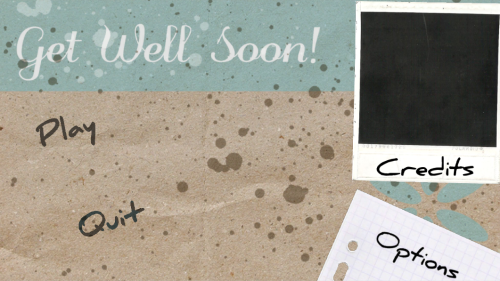
Our tools
Since GSM Productions was created, we could (and had to) get used to many tools. We thought it might be interesting to present those we’re currently using. Who knows? Some of you might find it useful! Later on, we plan on sharing a more detailed post on each of those tools, but in the meantime, here is a quick introduction.
Git
Any developer would tell you it’s fundamental to use a sources management system. Those tools are meant to preserve a history of all changes done to the code so you can go back if there’s any problem, and to manage simultaneous development and the conflicts those can provoke.
Among all the available tools, we choose Git. Git is quick and flexible and we’ve learned to use its strength thanks to Git-flow, a workflow proposed by Vincent Driessen. Without getting too technical, Git and Git-flow keep troubles away and allows us to work on (and keep calm) with a free mind!
Blender
A recurrent element of our history is the use of Blender. This 3D software is powerful and also the one the majority of GSM Productions’ members are the most used to, especially after following two years of training. Since the start, the opening, the way it is easily interfaced with most 3D engine as well as its functionalities made it an obvious choice for the team.
Unity3D
After some time (and some discussion, since our two developers are convinced linuxians), Unity3D was adopted as game engine by GSM Productions. For a team like ours, it’s in the end a natural choice, since even the free version of the software allow us to make our ideas come to life. Also, it’s the most robust engine we’ve worked with until today.
